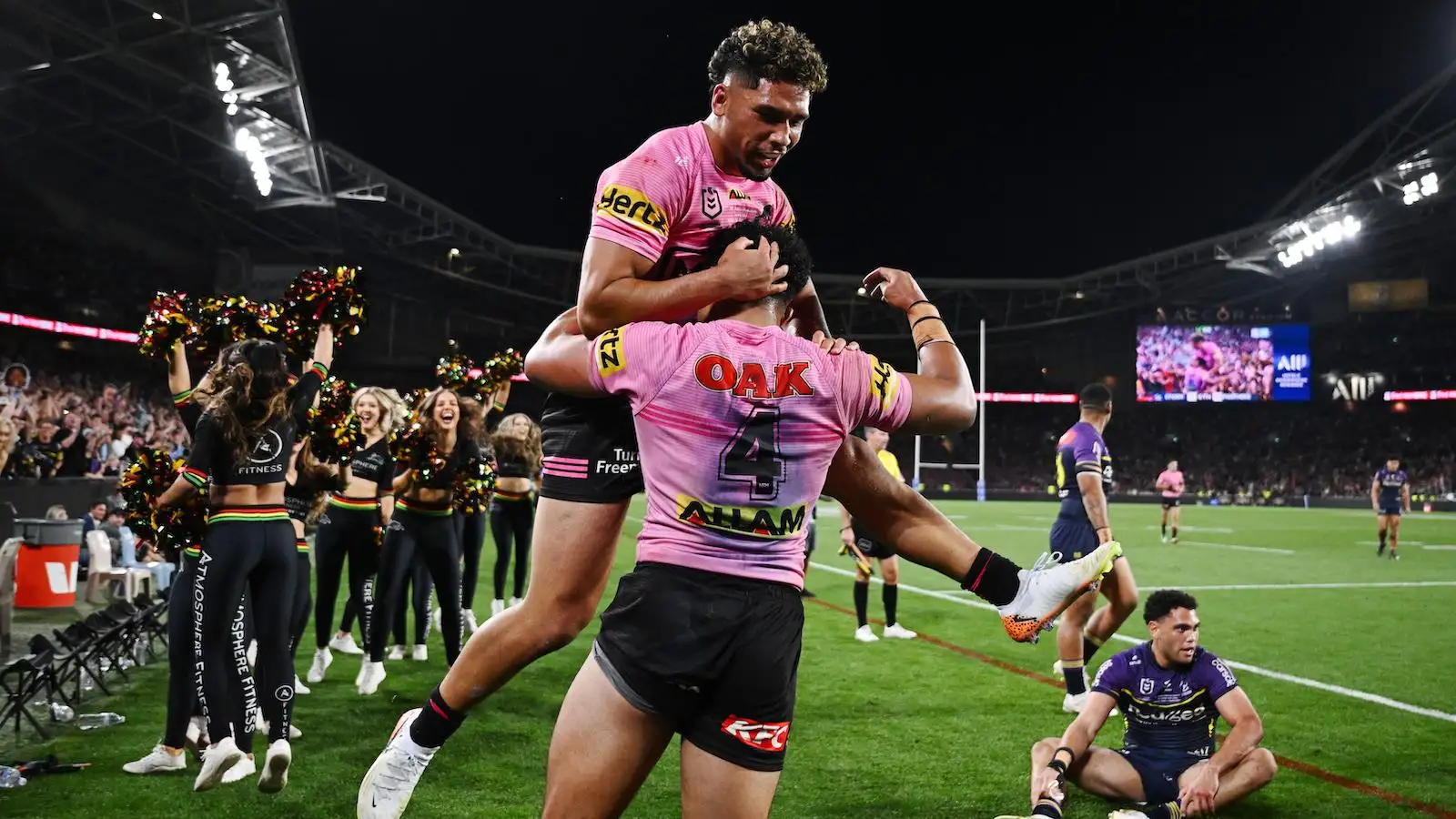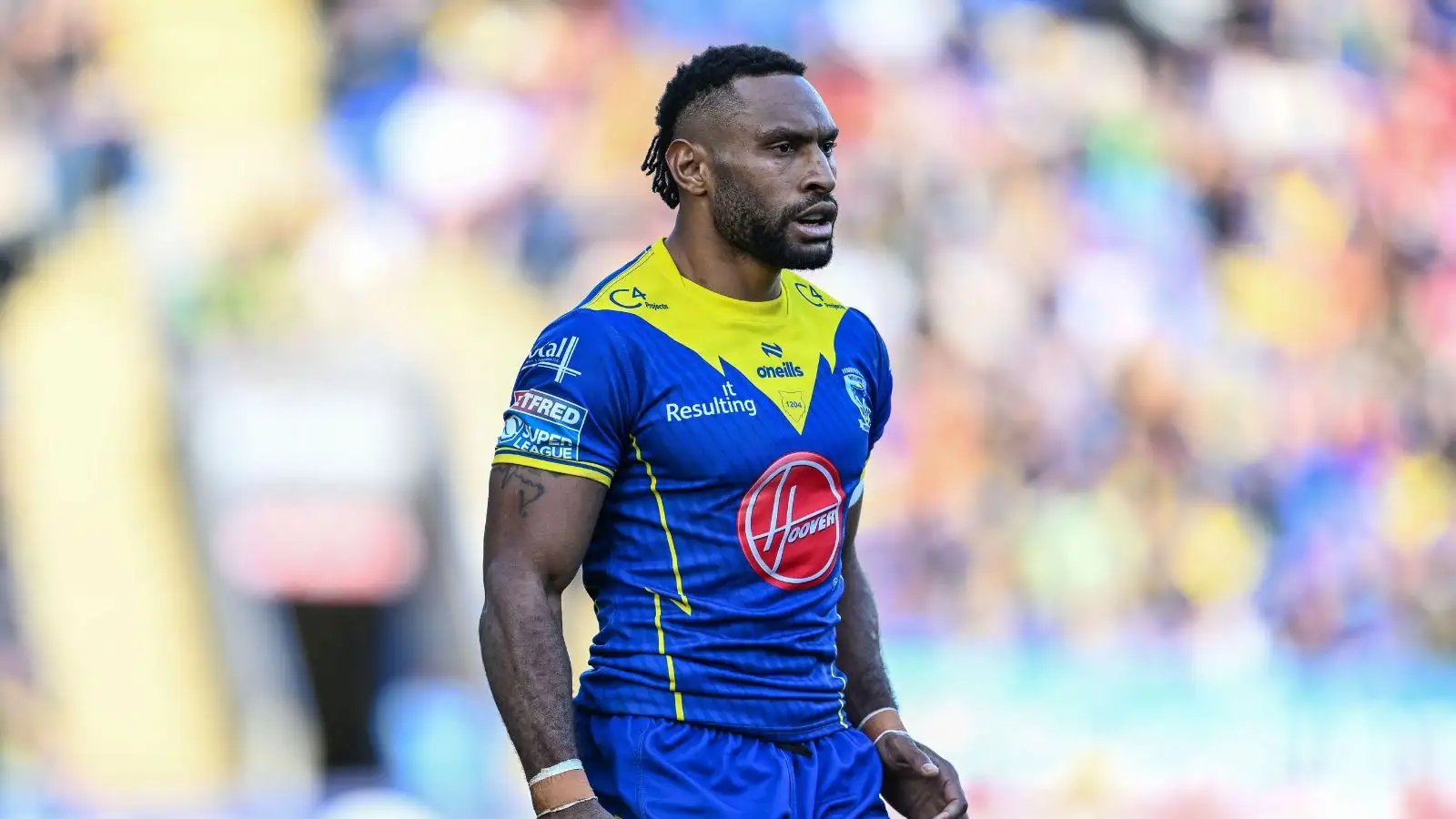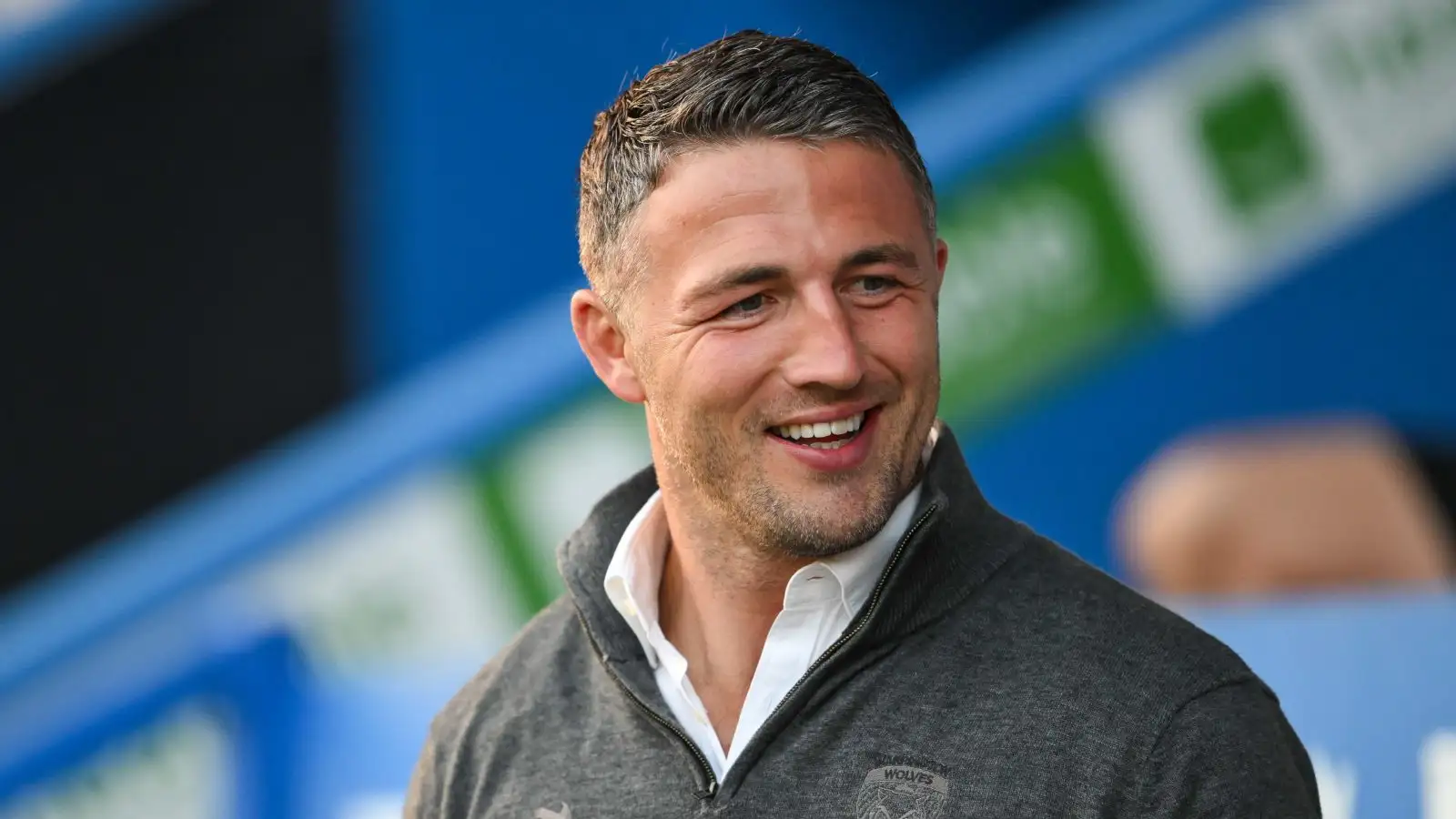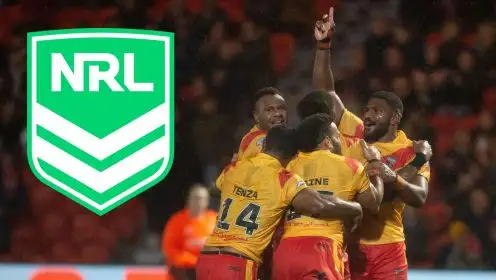Penrith Panthers insert themselves into the game’s all-time greats after NRL Grand Final history

Penrith Panthers celebrate Paul Alamoti's try in the NRL Grand Final
Penrith, if it wasn’t already clear, are the preeminent rugby league side of their generation. A 14-6 win here over Melbourne, confirming their fourth straight NRL Premiership, underlines as much, and the manner of it does so in bold type.
Where they might fit in an all-time ranking is now a serious question, because to do what they have done in this full-time, salary-capped era, while losing a stream of players to other clubs, is remarkable.
This is a genuinely good Storm side, who had beaten Penrith twice this year already and won the Minor Premiership, and they were ragdolled. You would not have been in a rush to back Penrith at +2.00 going into the game, but 14-6 makes it sound a lot closer than it was.
Though they have the best player, Nathan Cleary, and the smartest player, Isaah Yeo, this was a triumph of collective strategy.
The fact that Ivan Cleary can consistently introduce new players to replace departing stars is because the system is the superstar. The backline metres enable the linespeed and the slow creep of field position.
This was one was specifically designed version to dull Melbourne, to batter Harry Grant through tackling workload and to force the Storm pack, shorn of leader Nelson Asofa-Solomona, to work themselves into the floor.
Melbourne’s outside backs combined for nine tackles in the opening half hour, because Penrith simply didn’t go there. They constantly dropped players back inside, attempting to smash the Storm’s middle and force them into repeat bout efforts.
Tui Kamikamica was subbed off after 17 minutes and his replacement, Alec McDonald, dropped the ball on his first carry.
The plan was in action, and though the results didn’t come, Penrith don’t panic.
Melbourne actually scored first – interspersed between mountains of defence – but it did not phase Penrith for a second. They kept going, relentlessly.
This iteration of Ivan Cleary’s philosophy embraces risk to a far greater degree than previous versions, and they chucked plenty, not least from Jarome Luai turning against the grain.
His edge, with Paul Alamoti and Sunia Turuva, might have been considered the weaker but was empowered to take chances in attack and looked more dangerous as a result.
The Storm scramble was, as it so often is, exceptional – but the Panthers dared them to do it for 80 minutes. Of course, they couldn’t.
READ NEXT: The ELITE club Wigan Warriors could join after reaching latest Grand Final
The way to beat Penrith is to attack on every chance you get in their territory, and not to die wondering, while defending doggedly amid the inevitable pressure.
Melbourne had a red hot crack at both, but struggled to make inroads effectively enough. Jahrome Hughes was peripheral, Ryan Papenhuyzen battered in possession and Cam Munster a caricature of himself.
They say he’s best when he has a run-first mentality – who isn’t? – but this was that taken to an extreme, with deception lacking.
Their kicking was decent, but Penrith saw it coming and simply refused to engage: they actively encouraged Will Warbrick and Xavier Coates to catch the ball, then wrapped them up.
Penrith were relatively kick averse, content to go for the try, keep the ball alive and, if required, die with the ball to force Melbourne to run it back.
One such play saw Cleary catch Jack Howarth guessing, allowing Liam Martin to slip over at the corner just before half time after a midfield switch that feinted left and ended up right.
It was ironic that the game breaker did come from the boot as Martin outjumped Papenhuyzen for Alamoti’s try. That was the symptom, however: the cause was the pressure.
Down 14-6, the Storm were knackered. Whatever field position they accumulated, they were too tired to exploit.
Penrith, smartly, conceded set restarts, slowed the game down and waited for Melbourne to go too wide, whereupon they deposited Jack Howarth into touch.
The intensity was too much. The Panthers were too much. They have been for years.



